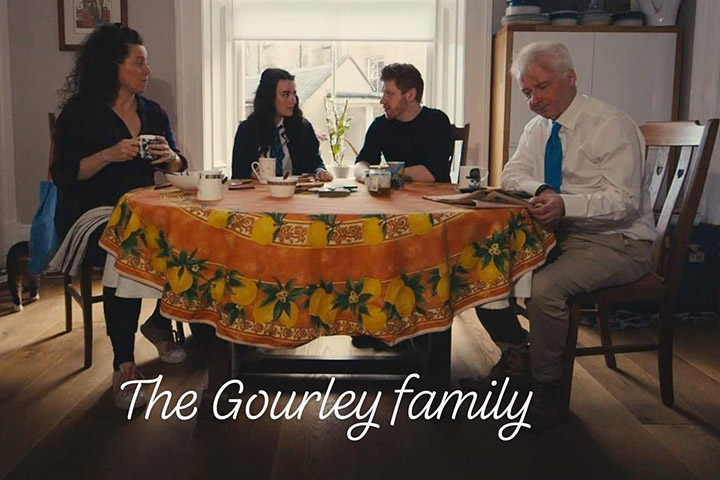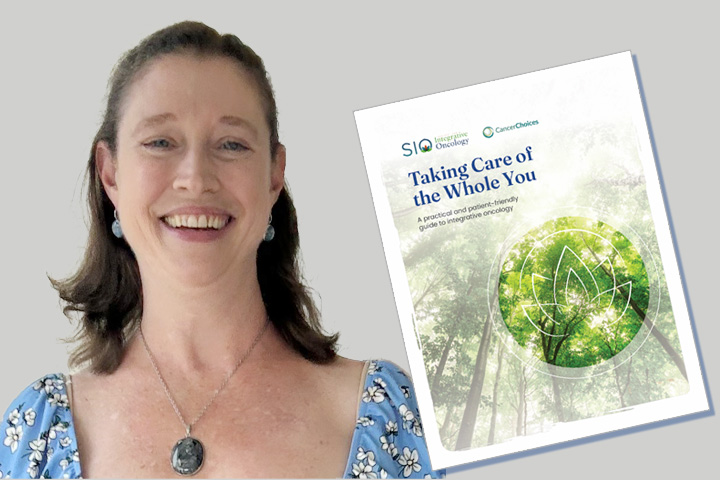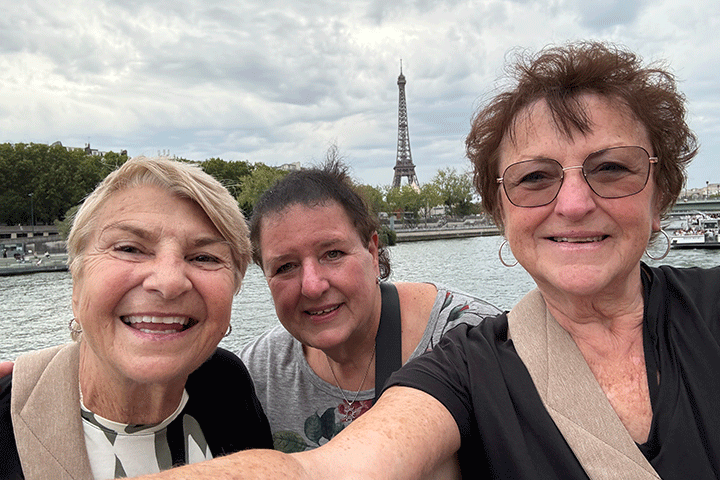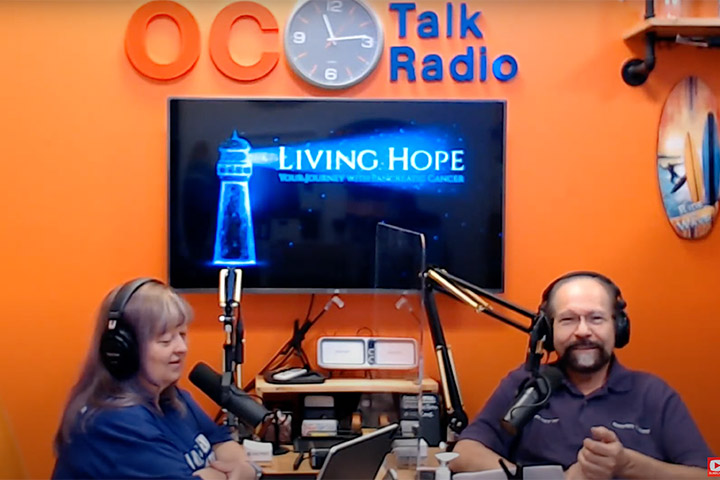Drama Helps Playwright Tackle Pancreatic Cancer Loss

Still photo from “Winds of Change”
John’s cancer arrived silently, unannounced, with no great fanfare. At first. Then it became a frantically paced, not-so-merry dance of death.
As his widow, Isobel Barrett, learned, however, the pancreatic cancer that claimed her husband’s life just a few weeks after diagnosis had been silently pirouetting its way into position and was waiting patiently in the wings to strike when the family was least expecting it.
“Waiting like the black swan jumping into the lake of our tears,” she later wrote.
John, a 76-year-old civil engineer, had been suffering for some time with abdominal discomfort and back pain. The Scotsman, a relatively healthy nonsmoker with a good diet, had polymyalgia, an inflammatory condition that causes muscle stiffness and pain, so he attributed most of his symptoms to that. But as the pain persisted and he began to lose weight and become increasingly fatigued, he made several trips to his doctor over the course of about two years, to no avail. Eventually he went to a specialist, and it was then that the cancer was finally spotted.
“We knew it wasn’t just indigestion or a sore tummy. It took eight or nine trips to the GP to convince them. What would have happened if it had been diagnosed after just two or three?” Barrett says. “But it was too late. When they said it was inoperable, he asked how long. They said weeks, and he took it on the chin.”
The next few weeks were a living nightmare for Isobel, John, and their two sons. And when John died, Isobel was inconsolable. But then she managed to channel her grief into her other passion: drama.
The playwright and director of the Glasgow-based TRAM Direct theater company penned a piece to help raise awareness of the silent killer she knew nothing about until it grabbed her attention in the cruelest way.
Islets of Silence
The play was initially called ‘‘Islets of Silence (The C Word),’’ and its purpose was clear: to raise awareness about pancreatic cancer and how it can devastate a family. It centers around the Gourley family as they go through everyday life, dealing with school and work with lighthearted humor and banter. When the dad’s diagnosis hits, each family member reacts differently. The play reflects both the interactions between the characters as well as their inner monologues.
How do you handle things when time is not on your side? In the case of the Gourley family—and the real-life John—the dad is frank and direct. “When you’re diagnosed with pancreatic cancer, you feel like a dead person walking,” the dad tells the audience. He puts his family first and goes straight into action mode, tackling the big decisions and having the tough talks early. He then takes time to be grateful and appreciate the life he’s had.
It’s an extremely moving portrayal of a family in distress, but there are plenty of laughs alongside the tears. The self-professed ‘‘Don Juan of Sewage,’’ Mr. Gourley reflects on how he had dreams of building bridges and motorways but ended up in the sewage department. “It may be a lot of sh*& to a lot of people, but it’s my bread and butter. Though I wouldn’t want to make a sandwich with it,” he jokes.
It was a scene straight out of real life, like many in the play. John’s voice and quirky character are very much embedded into the work, and in many ways the play is as much a love story as a tragedy. The way he handled his death reminded Barrett why she married him in the first place: for his strength, his courage, and his ability to face up to things, no matter what.
Winds of Change
The play is also a testament to the strength and determination of his widow, who persevered in bringing it to audiences despite some obstacles.
The first few performances were well attended and received national media coverage. Then, just as the theater group was preparing to take the show on a tour around Scotland, COVID-19 hit, and any hopes of continuing that momentum were dashed.
But Barrett didn’t give up. She recorded a short online version of the play to be broadcast during the pandemic (available here), and she has also organized a tour under the new title ‘‘Winds of Change,’’ with a focus on the family’s journey of love in the face of a huge life change.
The production will be performed at several venues across Scotland in September 2024. Barrett is keen to take the play to the rest of the U.K., and even around Europe and North America. She hopes it will educate people about pancreatic cancer—physicians included—and encourage them to advocate for their health.
“We must demand an earlier diagnosis and faster treatment,” Barrett says. “One in four people diagnosed with pancreatic cancer die within a month. It has one of the lowest survival rates, and the quickest killing.”
She also hopes the play will resonate in other ways. “Change happens to us all, and this we cannot avoid. However, love, hope, and a belief that things will improve will always see us through the dark tunnel that sometimes engulfs us.”






